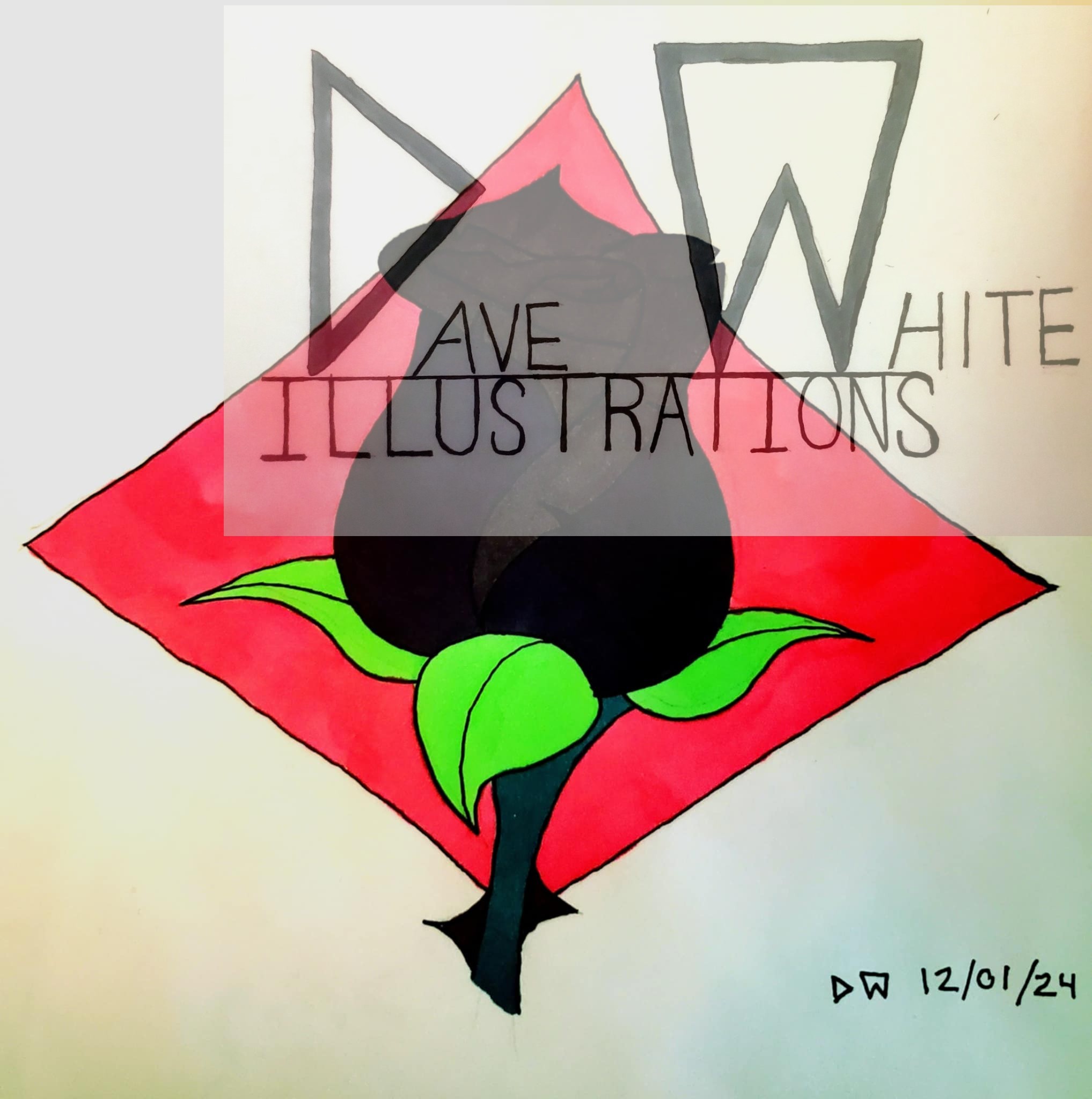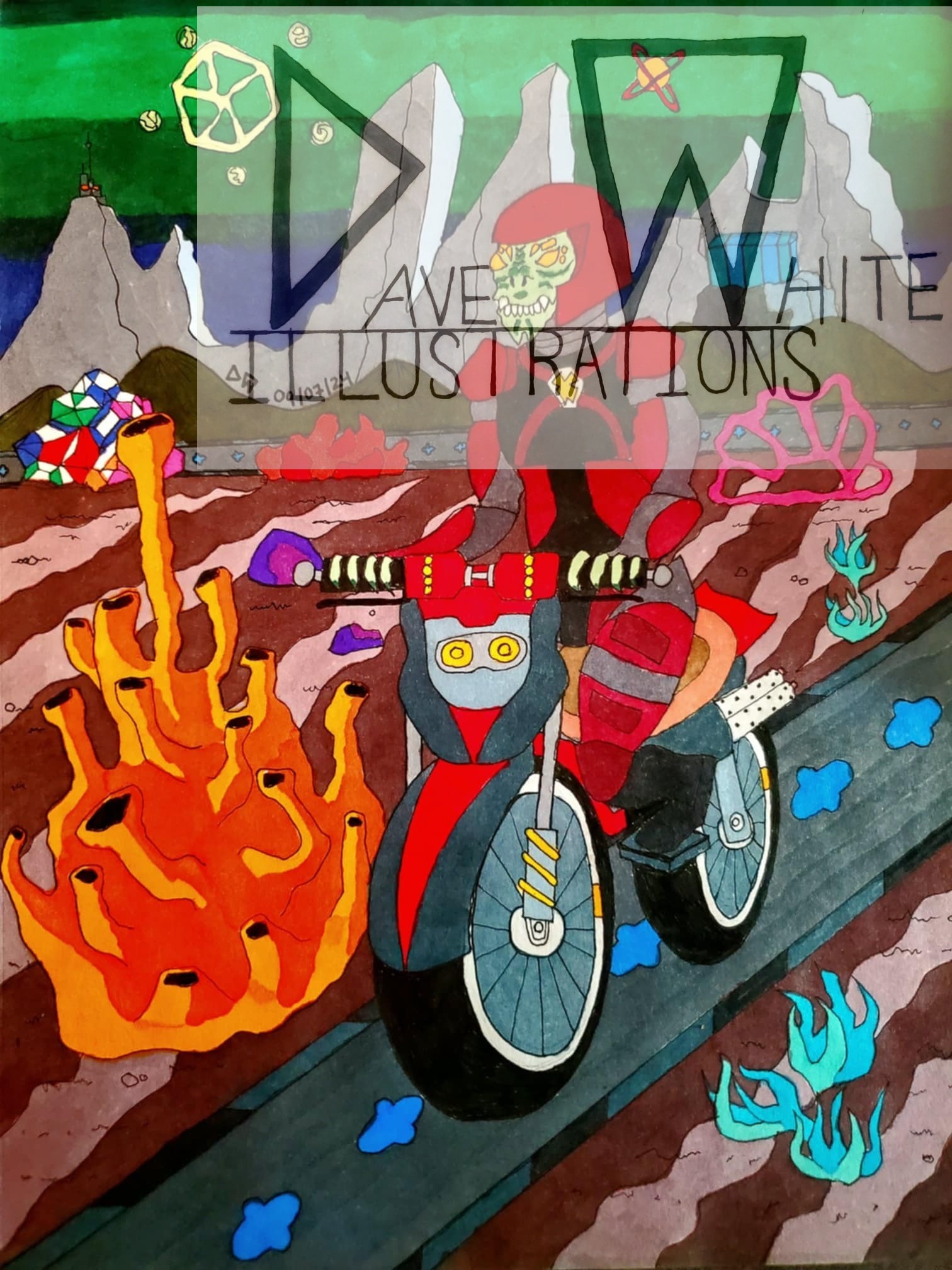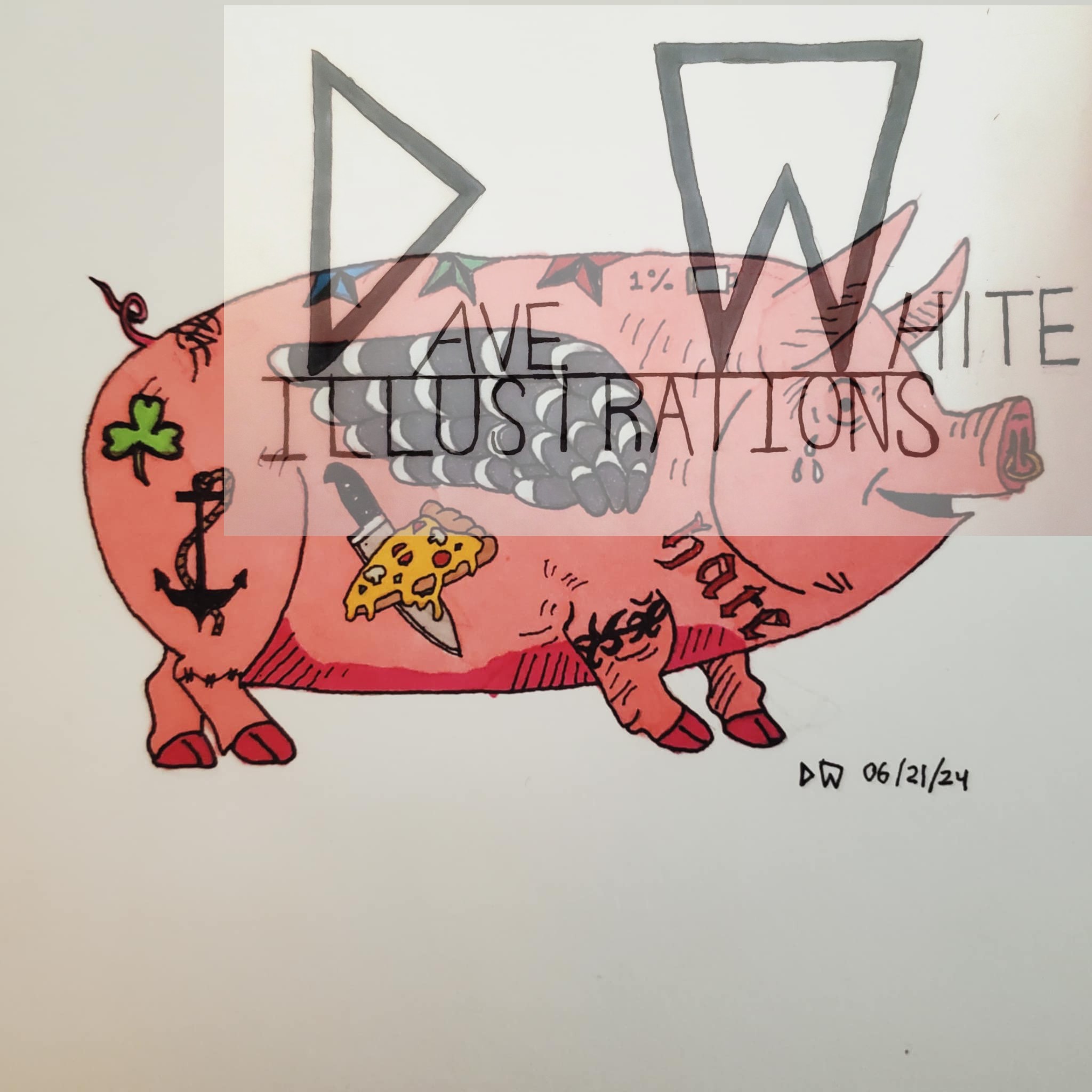Dave White’s Black Rose (December 1, 2024) and Kiana Jimenez’s poem Black Rose mirror one another in a profound meditation on uniqueness, loneliness, and resilience. Both the artwork and poem elevate the image of the black rose as a symbol of individuality—feared, misunderstood, yet quietly powerful in its defiance.
The illustration captures the rose in bold contrast: its velvety black petals bloom against a vivid crimson diamond backdrop, while deep green leaves and stem ground its intensity. The stark juxtaposition of colors highlights the rose’s duality—strength and vulnerability, beauty and melancholy, defiance and solitude. It is striking not because it conforms, but because it dares to stand apart.
The poem Black Rose carries this visual into verse. It tells the story of the rose’s isolation: unwanted among brighter flowers, feared for its thorns, left alone while others are chosen. Yet the poem refuses to leave the rose abandoned. The speaker, recognizing their own loneliness, chooses to claim the flower, nurture it, and honor its uniqueness.
“I picked it up and carried it back home…
I will appreciate your uniqueness
Because we are as lonely as each other.”
Together, the art and poem create a dialogue between isolation and belonging. The illustration presents the rose as a symbol of misunderstood beauty, while the poem transforms that solitude into connection—between the speaker and the rose, between two lonely beings who find strength in one another.
Black Rose becomes not only a symbol of resilience but also of recognition: the act of seeing and honoring what others overlook. Both pieces remind us that true beauty often lies in what defies expectations, and that loneliness can become companionship when someone dares to reach out.
Thorns of Solitude
Thorns of Solitude — A digital download pairing Kiana Jimenez’s poem Black Rose with Dave White’s illustration, exploring loneliness, beauty, and resilience in solitude.
25 in stock





Leave a Reply